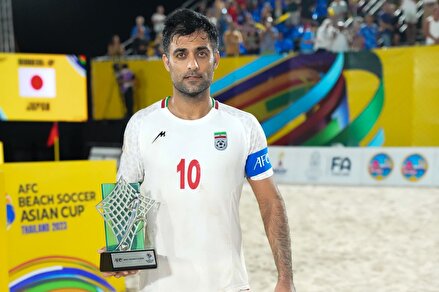
Iran Issues Professional Club Licenses Under New AFC Regulations

Speaking at a press conference, Zarei emphasized that professional licensing is an ongoing annual cycle. “The 2024–25 licensing process began in August. Each year, the FFIRI submits an updated licensing regulation to the Asian Football Confederation (AFC), which, once approved, is shared with clubs,” he explained.
This year’s licensing process concluded on May 13, with clubs submitting documentation across five key areas: sporting, infrastructure, personnel, legal, and financial. Zarei highlighted two major additions to the criteria:
-
Women’s Football Mandate: All clubs—except one—were required to establish women’s football teams. This led to a 44% increase in registered female players, improving wages and pitch conditions across the board.
-
Mandatory Defibrillators: For player safety, clubs were required to provide AED (defibrillator) devices, even though this was not mandated by the AFC.

Licensing Results:
Seven clubs were granted AFC-approved licenses:
-
Aluminium Arak
-
Esteghlal
-
Sepahan
-
Persepolis
-
Foolad Khuzestan (the only club to receive it without a fine)
-
Gol Gohar Sirjan
-
Tractor
Three clubs — Shams Azar, Havadar Tehran, and Esteghlal Khuzestan — received no license, and others were awarded national licenses. The final decisions were submitted to the AFC and are expected to be reviewed by July.
Zarei noted that eight First Division clubs did not participate in the licensing process. Clubs without a national license will face sanctions in the upcoming season, including a three-point deduction and ban on signing foreign players (pending Disciplinary Committee approval).
Financial Realities and Licensing Criteria
Zarei clarified that clubs do not need to be profitable to receive a license, but must prove they have audited financial statements and can sustain operations for the next season. “While continued financial losses are not grounds for automatic rejection, clubs have received serious warnings,” he said.
Zarei criticized the current financial model in Iranian football:
“Over 70% of club income comes from state-owned parent companies. This reliance is dangerous. While AFC rules don’t ban it, it’s unsustainable.”
He also called out the absence of broadcasting revenue, which forms the backbone of club income globally.
“The fact that up to 68% of football revenue in other countries comes from broadcasting shows how far behind we are. Without it, we are weakening the industry’s viability.”
Zarei also warned of inflated player salaries driven by unhealthy competition:
“In our football, whoever spends more wins more. That’s not sustainable. Clubs buy star players—even to sit on the bench—to guarantee results. If this continues, we’re heading toward widespread financial collapse.”
Youth Development & AFC Academy Mandates
Zarei highlighted a new AFC rule requiring clubs participating in the AFC Champions League to include three homegrown academy players in their 25-man squad—rising to four by 2027, and a total of seven domestic-developed players.
“There’s almost no player development anymore. Clubs don’t even invest 1% of player earnings into academies,” he added.
Legal Ownership & Stadium Standards
Regarding Mes Rafsanjan, he explained that their shared ownership structure (with other Mes Group clubs) prevented them from obtaining an AFC license. Although they were granted a national license due to their unique status in the top division, this issue must be resolved for future AFC participation.
Zarei praised Imam Khomeini Stadium in Arak for meeting AFC hosting standards and highlighted the federation’s approval of the venue for future continental matches.
However, he raised concerns over artificial turf quality, stating that most synthetic pitches in Iran lack basic standards and resemble “green carpet.” FIFA only approves a handful of artificial turfs for international use.
Finally, he confirmed that two newly promoted clubs to the Persian Gulf Pro League are in the process of obtaining their licenses. Should they fail, they will begin the season with negative points.











